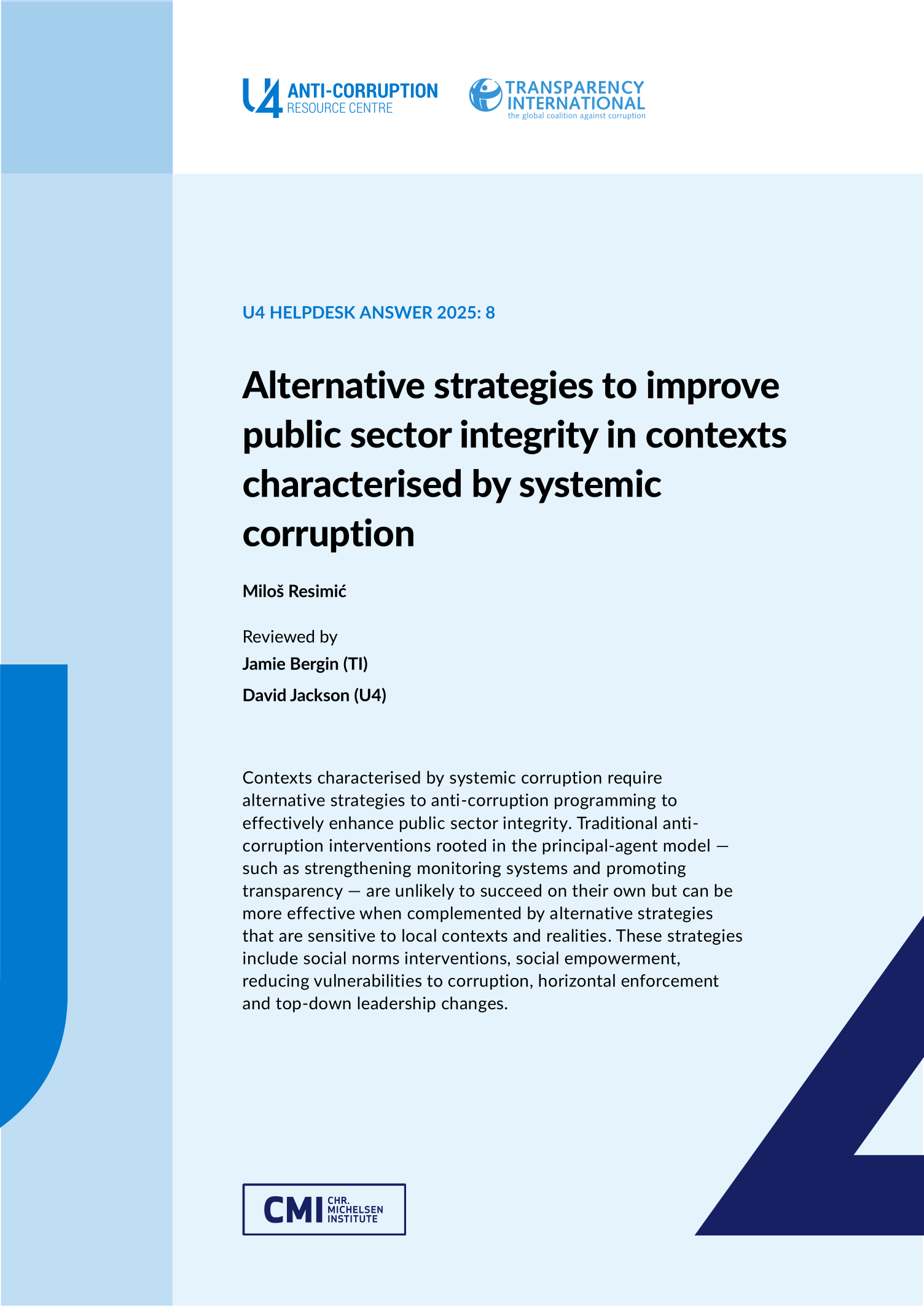Main points
- Contexts of systemic corruption are typically characterised by the existence of high levels of corruption, deeply embedded informal networks and the prevalence of corruption-sustaining norms.
- Traditional anti-corruption interventions grounded in principal-agent model may not succeed in improving public sector integrity in such contexts for a number of reasons, including a lack of commitment on the part of principals to enforce anti-corruption reforms and the presence of embedded corruption-sustaining norms.
- Complementing traditional anti-corruption interventions with alternative strategies that are sensitive to local contexts and realities and responsive to collective action problems is a more promising approach.
- The alternative strategies that have been most influential in the literature can be grouped under five broad categories: social norms, social empowerment, reducing vulnerabilities to corruption, horizontal enforcement and top-down leadership changes.
- Understanding the underlying corruption-sustaining social norms in a specific context can help in designing more effective anti-corruption interventions that respond to rather than clash with these norms.
- Social empowerment – through strategies such as establishing ‘pockets of effectiveness’ and implementing capacity-building programmes – can help dismantle deeply embedded informal networks.
- To reduce vulnerabilities to corruption, it is important to recognise that corruption can play a functional role when formal institutions are dysfunctional. Addressing underlying institutional inefficiencies can help rebuild trust in formal institutions.
- The horizontal enforcement of anti-corruption programming is more likely to succeed if efforts are made to understand the political realities of specific local contexts, identify key leaders, assess their incentives and pinpoint potential coalitions that are most likely to be interested and incentivised to push for enforcement of anti-corruption reforms.
- Ethical leadership tackles systemic corruption by promoting integrity and accountability within public institutions, with leaders serving as role models who set ethical standards for their peers and subordinates.
- These alternative strategies are relatively new and, while empirical research testing of their assumptions is still nascent, some studies have emerged that show promising findings.


